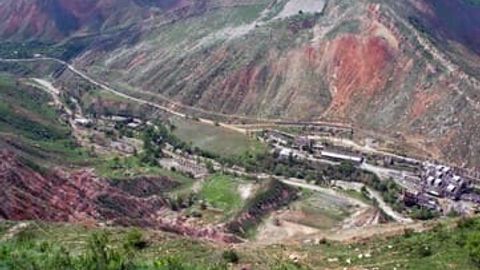Turkmenistan and UAE discuss joint infrastructure projects to strengthen regional transport connectivity
21:31 / 02.03.2026
The Board of Peace: strategic implications for Central Asian multivector diplomacy
20:22 / 02.03.2026
Uzbekistan Airways to repatriate pilgrims following regional unrest
19:00 / 02.03.2026
Uzbekistan tops medal standings with 17 at Stranja tournament
18:05 / 02.03.2026
Kazakhstan adopts migration policy to address labor market needs through 2030
17:08 / 02.03.2026
Recommendations
Menu
Good news:
Tags
Grow your business with us
Advertise on Daryo.uzIndividual approach and exclusive materials
Ad-free site readingSubscribe
25 000 sum per month






Comments
To leave a comment, first